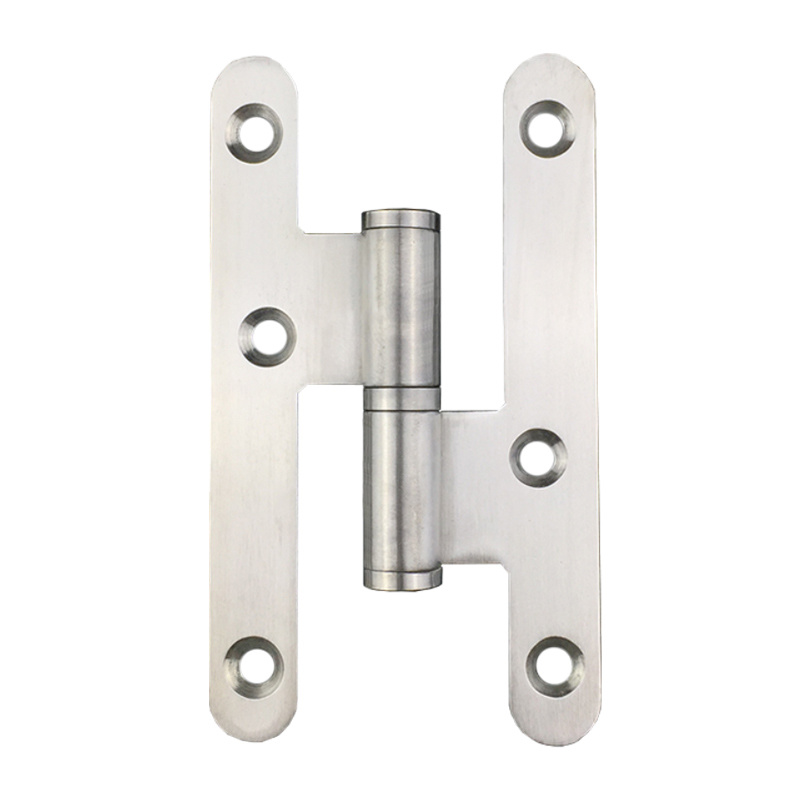Comparing Heavy Duty Industrial Door Hinges: Which Is Right for You?
2025-10-03

Comparing Heavy Duty Industrial Door Hinges: Which Is Right for You?
Table of Contents
- Understanding Heavy Duty Industrial Door Hinges
- The Importance of Selecting the Right Hinge
- Types of Heavy Duty Industrial Door Hinges
- Key Features to Consider When Choosing Hinges
- Materials Used in Industrial Door Hinges
- Installation Tips for Industrial Door Hinges
- Maintenance Best Practices for Door Hinges
- Frequently Asked Questions
- Conclusion
Understanding Heavy Duty Industrial Door Hinges
Heavy-duty industrial door hinges are essential components designed to support the weight and functionality of large and frequently used doors. These hinges are engineered to withstand significant loads, making them ideal for warehouses, factories, and commercial buildings. Their robust construction enables them to endure daily wear and tear, ensuring longevity and reliable performance in high-traffic environments.
The Importance of Selecting the Right Hinge
Choosing the correct hinge for your industrial doors is crucial for ensuring safety, security, and operational efficiency. The right hinge can significantly impact door performance, including its ability to swing smoothly, resist sagging, and provide adequate support for heavy doors. Selecting an inappropriate hinge can lead to premature wear, door misalignment, and even safety hazards.
Types of Heavy Duty Industrial Door Hinges
There are several types of heavy-duty industrial door hinges, each designed for specific applications and requirements. Understanding the differences among these types can help you make the right choice for your facility.
1. Concealed Hinges
Concealed hinges are designed to be hidden when the door is closed, providing a clean aesthetic while still offering strength and durability. These hinges are often used in high-end commercial applications and settings where visual appeal is essential.
2. Continuous Hinges
Continuous hinges, also known as piano hinges, run the entire length of the door. This design distributes weight evenly, making them ideal for heavy doors that require smooth operation without sagging.
3. Pivot Hinges
Pivot hinges allow the door to rotate around a pivot point rather than swinging on a traditional hinge. This type is often used for large industrial doors, as it can accommodate heavy weights and provides ease of access in tight spaces.
4. Strap Hinges
Strap hinges are characterized by long, flat plates that extend along the surface of the door. These hinges are typically used for barn doors and gates, offering a rustic aesthetic while providing reliable support.
5. Heavy-Duty Butt Hinges
Heavy-duty butt hinges are a common choice for industrial applications due to their strength and versatility. They are available in various sizes and finishes, making them suitable for a wide range of door types.
Key Features to Consider When Choosing Hinges
When selecting heavy-duty industrial door hinges, several features should be at the forefront of your decision-making process.
1. Load Capacity
The load capacity of the hinge is one of the most critical factors to consider. Ensure that the chosen hinge can support the weight of the door, accounting for any additional stress from frequent use.
2. Material and Finish
The material of the hinge affects its durability and resistance to corrosion. Stainless steel, brass, and galvanized steel are common choices for heavy-duty hinges. Consider the environment where the hinge will be installed to choose the appropriate finish.
3. Design and Aesthetic
The design of the hinge can influence the overall appearance of the door. Choose a hinge that complements the door style and the surrounding decor, especially in commercial settings where visual appeal is important.
4. Maintenance Requirements
Some hinges require more maintenance than others. Opt for hinges designed for minimal upkeep, especially in high-traffic areas where regular maintenance may not be feasible.
Materials Used in Industrial Door Hinges
The material used in the construction of heavy-duty industrial door hinges plays a significant role in their performance, durability, and longevity.
1. Stainless Steel
Stainless steel is a popular choice for industrial hinges due to its resistance to rust and corrosion. It is ideal for outdoor applications or humid environments where moisture can affect other materials.
2. Brass
Brass hinges offer excellent durability and a classic look. They are often used in settings where aesthetic appeal is essential, such as in high-end commercial buildings. However, they may require more maintenance to prevent tarnishing.
3. Galvanized Steel
Galvanized steel is coated with zinc to prevent corrosion, making it suitable for heavy-duty applications in moist environments. These hinges are robust and can withstand significant stress and wear.
4. Plastic or Composite Materials
Some industrial hinges are made from advanced plastic or composite materials. These hinges are lightweight and resistant to corrosion, making them ideal for specific applications where traditional metals may not be suitable.
Installation Tips for Industrial Door Hinges
Proper installation is critical for the performance and longevity of heavy-duty industrial door hinges. Here are some essential tips to ensure a successful installation:
1. Measure Accurately
Before installation, accurately measure the door and frame to ensure the hinges fit correctly. Pay attention to the weight distribution and ensure the hinges are rated for the door's weight.
2. Use Quality Fasteners
Always use high-quality screws or fasteners that are compatible with the hinge material. This will prevent stripping and ensure a secure fit.
3. Align Hinges Properly
Ensure the hinges are aligned correctly to avoid misalignment issues. A misaligned hinge can lead to increased wear and could compromise door functionality.
4. Test Door Movement
After installation, open and close the door multiple times to test its movement. Ensure that it swings smoothly and doesn’t sag or bind. Adjust the hinges as necessary.
Maintenance Best Practices for Door Hinges
To ensure the longevity and performance of heavy-duty industrial door hinges, regular maintenance is essential. Follow these best practices:
1. Regular Cleaning
Keep hinges clean by removing dirt and grime with a damp cloth. For areas with heavy buildup, use a mild detergent and rinse thoroughly.
2. Lubrication
Apply a suitable lubricant, such as silicone or graphite, to moving parts of the hinges to reduce friction and prevent wear. This will help maintain smooth operation.
3. Inspect for Damage
Regularly inspect hinges for signs of wear, rust, or damage. Address any issues promptly to avoid further complications.
4. Tighten Loose Screws
Check and tighten screws periodically to ensure that the hinges remain securely attached to the door and frame. Loose screws can lead to misalignment and increased wear.
Frequently Asked Questions
1. How do I know which hinge type is best for my industrial door?
Consider the door's weight, frequency of use, and the specific application. Consult with a professional if needed.
2. What materials are best for heavy-duty door hinges?
Stainless steel, brass, and galvanized steel are among the best materials for durability and corrosion resistance.
3. Can I install heavy-duty hinges myself?
Yes, with the right tools and knowledge, you can install heavy-duty hinges yourself, but professional installation is recommended for optimal results.
4. How often should I lubricate my door hinges?
It is advisable to lubricate hinges every few months, or more frequently if the door is in high traffic.
5. What are the signs that my door hinges need to be replaced?
Signs include excessive rust, difficulty in opening or closing the door, and visible wear or damage.
Conclusion
Choosing the right heavy-duty industrial door hinge is essential for ensuring the functionality and longevity of industrial doors. By understanding the different types of hinges, their materials, and key features, you can make an informed decision that meets your specific needs. Remember to consider installation and maintenance best practices to enhance the performance of your hinges. Ultimately, the right hinge will contribute to safer, smoother, and more efficient operations within your facility. Investing time in research and selection will pay off in durability and satisfaction for years to come.
Contact Us
E-mail :
ivyhinge@163.com
Phone/WhatsApp:
+86 18924942354
Address:
XIAOLAN TOWN,ZHONGSHAN cIty,GUANGDONG province,China



